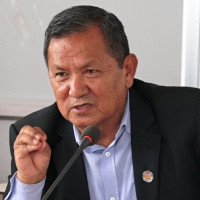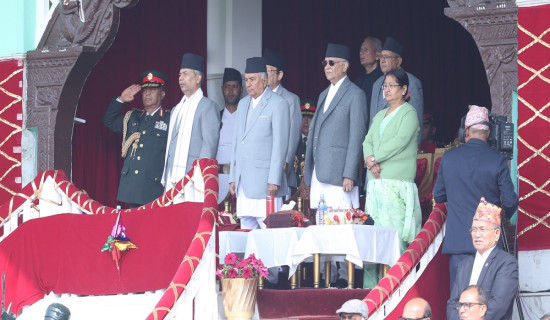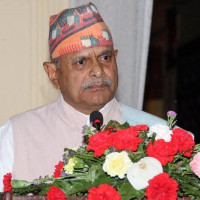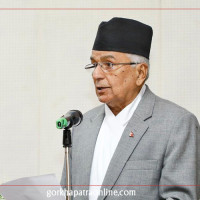- Wednesday, 19 February 2025
Chepang community shamans disappearing
By Basanta Parajuli,Bharatpur, Sept. 8: Chepang is one of the marginalised communities of Nepal. For years, the community has been dependent on Pandes (shamans) for rituals from birth to death alongside traditional treatment through spiritual power and medicinal herbs when one gets sick.
Until some years ago, there were enough Pandes in every Chepang community. "Now, only two or four Pandes can be found within a district," said Govinda Chepang, chairman of Nepal Chepang Association. Chepangs are found living in 26 districts.
According to Govinda, a Pande is required to perform every traditional ritual from birth to death. "Once, almost every household in the Chepang community used to have a Pande. It seems that their number declined in lack of our attention," he added. On the other hand, the Chepang communities have been unable to celebrate their national festival of Nwagi, also known as Chhonam, throughout the country because of the lack of enough Pandes.
Nwagi falls annually on the 22nd day of the Nepali month of Bhadra (September 7 or 8). It falls on September 8 this year. The festival is celebrated by worshipping earth and food.
"Nwagi is also known as 'Pnadei Ghyasa'. This is our national festival and the day we forget all our sufferings and celebrate with each other.
The maize harvested this season is the Chepangs’ main food staple. Still, 80 per cent of the Chepang population consumes maize flour as their major food," said Govinda. According to the community members, Pandes, who are required even for basic rituals, are needed to perform the festival rites as well. "In lack of Pandes, a community-level celebration of Nwagi has almost come to an end. We are bound to celebrate it joyously by gathering at the central, or, sometimes, at the district level," said Govinda.
This year, the Chepangs from across the country are gathering in Makwanpur, a district with a large number of Chepang families, on Friday to celebrate their Nwagi.
The Bagmati Province government has also given a public holiday on the occasion of Nwagi in three districts – Chitwan, Makwanpur and Dhading – as they are home to the largest number of Chepangs. The community members were preparing for the festival by only consuming pure food items on Thursday. They plan to celebrate the festival until Saturday.
On the day of Nwagi, they worship earth by offering food items, including maize and yam, in the name of their ancestors. "There is a belief in our community that the god will get angry if the ancestors are not offered the new harvest," said Devilal Chepang, a Pande from Ward No. 8 of Raksirang Rural Municipality of Makwanpur.
According to Devilal, they are allowed to start eating for another year only after a Pande offers a hen to Nem (sun), Lah (moon), Sing (tree), earth and water.
The Pandes informed that their Nwagi festival was also influenced by modernism as the Chepangs have started celebrating the festival with several families gathering under a single roof and eating delicious meals.
According to Napoleon Chepang, coordinator of the Chepang language page published in Gorkhapatra Daily, modernism has also affected the community.
"Our community members are being lured with money due to poverty to change their religion. Some are trying different things in their lives due to exposure to the modern world.
This has led to a decline in the number of Pandes. Moreover, the new generation is getting less informed about its culture and tradition," said Napoleon.
According to Devilal, a Chepang individual is honoured with the title of Pande by learning on their own. "The knowledge comes in the dream.
We should not be criticising others' religion but continue to believe in our own religion and take it forward," said Devilal.
According to the National Census 2021, the population of Chepangs is 84,366, and they are living in 26 districts of the country. Of them, 32,000 are in Chitwan alone.

.jpg)







-original-thumb.jpg)







